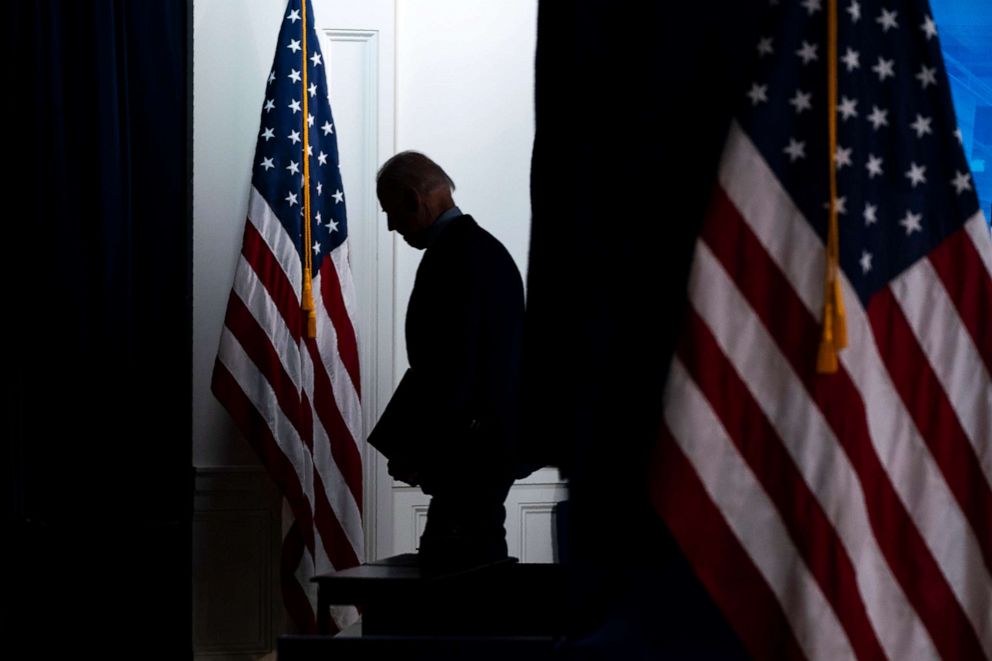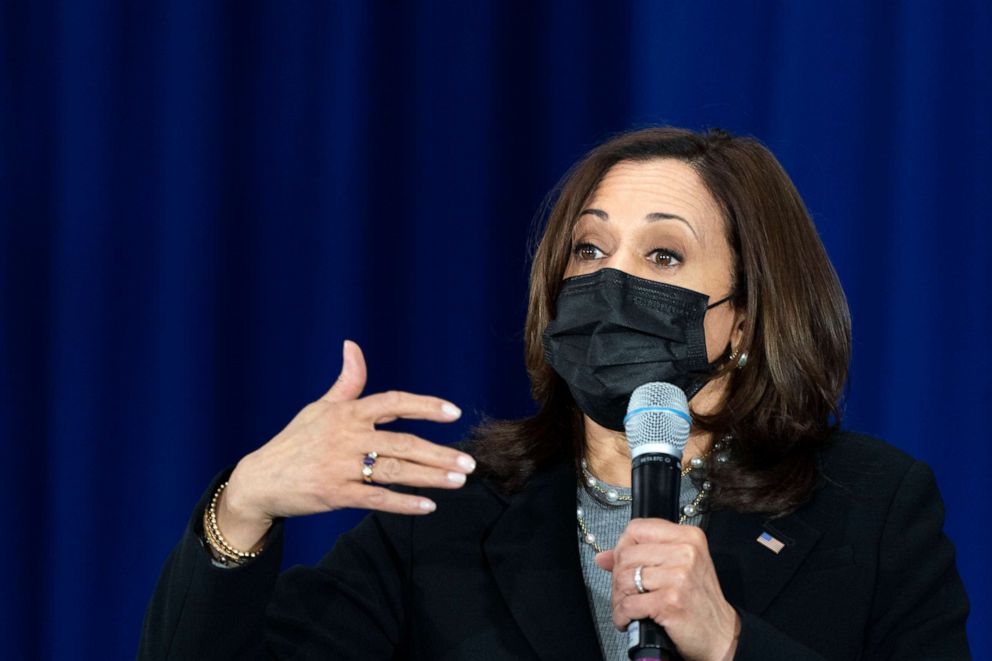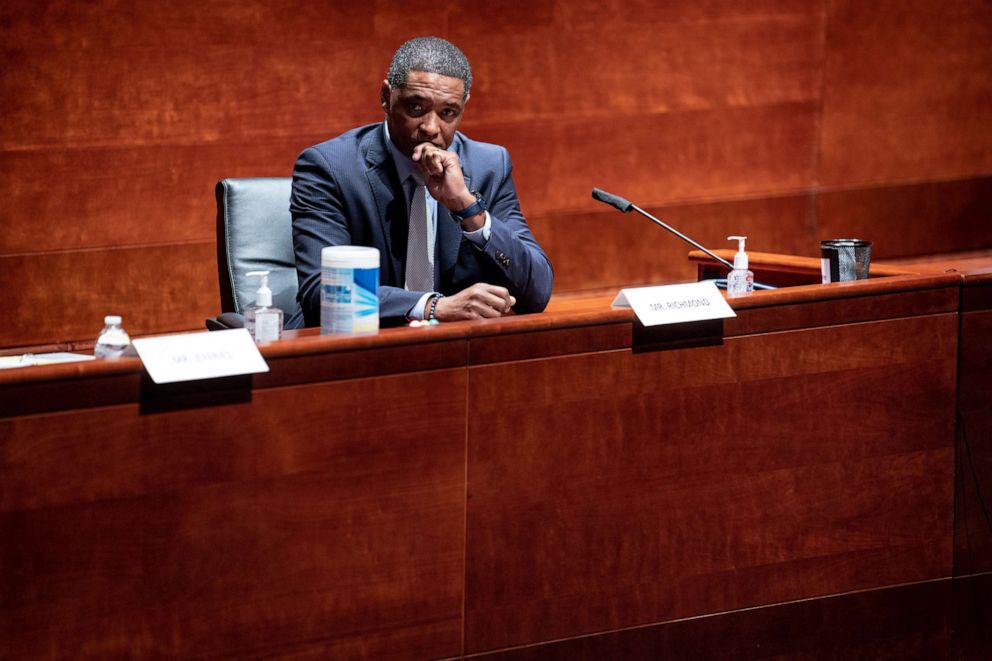Contradictions shape Biden presidency as 100-day mark approaches: The Note
This week will mark 100 days and feature Biden’s first address to Congress.
The TAKE with Rick Klein
It might be that 52 is the new 65, and that President Joe Biden is demonstrating the upper limits of presidential approval ratings in a polarized time much like his predecessor showed its depths.
It might also be that Biden's honeymoon is over -- or that he never really had one at all.
The latest ABC News/Washington Post poll shows some of the contradictions and conflicting signals that are set to shape this phase of the Biden presidency. His standing is either holding strong as can be or is already falling behind, depending on political points of view and judgments about partisanship's pull in 2021.
Biden's approval rating is 10 points higher than former President Donald Trump's was four years ago, yet 14 points below the 100-days-in average of presidents going back to 1945. For all the promise of aisle-crossing, exactly as many Republicans -- 13% -- approve of Biden as Democrats approved of Trump 100 days into his tumultuous term in office.
This week will mark 100 days and feature Biden's first address to a joint session of Congress, with him going bolder and bigger yet with virtually no guaranteed legislative victories ahead.

There's another contradiction that will take testing and unpacking: Americans by a 2-to-1 margin want Biden to make major changes to his proposals to win GOP support, even though his most popular achievement to date -- the COVID-19 relief bill -- passed with only Democratic votes.
Perhaps the best news out of this poll for the Biden White House are indications that voters are drifting from a vision of smaller government that provides fewer services more than they appear to have in more than 30 years.
That's hardly an endorsement of trillions in new spending and a checklist of progressive policy priorities. At least, though, the public appears to be listening to the president -- even one who's speaking with less frequency and fervor than his predecessor.
The RUNDOWN with Averi Harper
Vice President Kamala Harris is continuing with one of her first forays into foreign policy by virtually meeting with Guatemalan President Alejandro Giammattei on Monday.
The vice president, who has been tasked with stemming migration from Northern Triangle nations, will discuss relief efforts to aid the immediate needs of Guatemalans and continue talks on migration. She is also slated to virtually meet with Mexican President Andrés Manuel López Obrador next month and is expected to travel to Central America in June.

About a month into the vice president's assignment, she's already garnered the ire of Republicans like House Minority Leader Kevin McCarthy, R-Calif., who accuse Harris of not doing enough.
Harris has not indicated how she'll measure success in the region, and in an interview with CNN aired Sunday the vice president tempered expectations.
"It's not going to be solved overnight. It's a complex issue," said Harris. "Listen, if this were easy, it would have been handled years ago."
Clarity on how the administration will define success in this area matters in both the short and long term for Harris. In the short term, her success could alleviate the crisis at the U.S. southern border. According to the latest ABC News/Washington Post poll, Biden has just 37% approval for his work on the immigration situation at the U.S.-Mexico border. In the long term, it could bolster confidence in Harris' foreign policy chops as she plots her course post-Biden presidency.
The TIP with Alisa Wiersema
Another one of this year's special elections concluded Saturday, as Louisiana state Sen. Troy Carter defeated his fellow state Sen. Karen Carter Peterson to replace Cedric Richmond, who left Congress to take a position as White House senior adviser.

A Democratic victory in the state's only solidly blue district may not have been surprising, but the dynamics between the two candidates served up yet another example of the ongoing jockeying between the progressive and more moderate wings of the party. Despite generally agreeing on a Democratic policy platform, the candidates diverged in their approaches to the Green New Deal and bipartisanship.
Endorsements also weighed heavily into the broader context of the race. Carter had the early backing of Richmond and went on to implicitly tie his candidacy to the pandemic-era policies launched by the Biden Administration. Meanwhile, Carter Peterson was endorsed by high-profile progressives like Rep. Alexandria Ocasio-Cortez, Stacey Abrams and Sen. Elizabeth Warren. President Biden did not issue an endorsement in the race.
The addition of another Democrat in the House expands the party's slim majority to 219. Three more blue-leaning districts in New Mexico, Florida and Ohio are also set to have special elections later this year.
ONE MORE THING
The latest ABC News/Washington Post poll shows that fewer than half of Americans see the Johnson & Johnson coronavirus vaccine as safe and barely more than a fifth of those not yet vaccinated would be willing to take it -- yet overall intentions to get vaccinated have risen since January.
THE PLAYLIST
ABC News' "Start Here" podcast. http://apple.co/2HPocUL
Monday morning's episode features ABC News' Anne Flaherty, who tells us what we need to know about the Johnson & Johnson vaccine now that it's back in use. ABC News' Conor Finnegan explains why Biden's recognition of the Armenian genocide could impact America's relationship with Turkey. And Liz Kreutz from our affiliate KGO tells us what Caitlyn Jenner's entrance into the California governor's race could mean for the effort to recall Gov. Gavin Newsom. http://apple.co/2HPocUL
WHAT YOU NEED TO KNOW TODAY
Download the ABC News app and select "The Note" as an item of interest to receive the day's sharpest political analysis.
The Note is a daily ABC News feature that highlights the key political moments of the day ahead. Please check back tomorrow for the latest.




